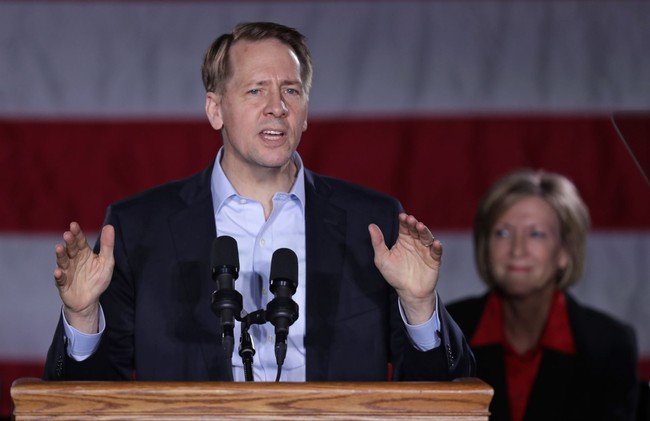College graduates celebrate their commencement ceremonies and certainly hope that their challenging work will pay off. After all, in Trump’s booming economy and record-low unemployment, there are countless opportunities for entrepreneurship and success.
Unfortunately, there is one reason why these dreams may never come true: paying off school debt. Too many students and parents are painfully aware that there are more than 44 million borrowers in America who collectively owe $1.5 trillion. Because of these responsibilities, juvenile adults are postponing major life milestones – such as buying a home and getting married – without saving.
With aid from the federal government, they have been saddled with debt by the higher education industrial complicated. Now, thanks to some of the Obama administration’s decisions, the problem may get even worse!
Before his disastrous campaign for governor of Ohio, Richard Cordray was in the Obama administration, heading the Consumer Financial Protection Bureau (CFPB). We now learn that Cordray likely exceeded the scope of his authority by entering a “consensual judgment” against the National Collegiate Master Student Loan Trusts (NCMSLT). in September 2017. The decision deserves more attention because it threatens Trump’s economic boom, potentially harming the U.S. financial market and freezing the lending industry.
NCMSLT Funds are passive investors who hold $12 billion in student loan assets originated at multiple banks such as Bank of America and JPMorgan Chase over a decade ago. Pension programs in insurance companies then financed them through securitization transactions on capital markets. In layman’s terms, securitization helps the economy because it allows investors to finance consumer and student loans, which also lower interest rates for borrowers.
Under Cordray’s leadership, the CFPB brought charges against debt collection agencies over outstanding student loan balances. However, instead of going after these debt collectors, they decided to also go after the NCMSLT itself, without having any statutory powers to do so.
Cordray’s decision was a classic DC swamp move. By presenting a façade of being tough on debt collectors, he put Obama’s top donor, Donald Uderitz, founder of the hedge fund that owns shares in NCMSLT, in a unique position to exclude other investors and usurp control over them. The CFPB gave Uderitz access and control over student loan services, allowing him to earn significant revenue from something that would otherwise not be profitable. Cordray’s actions are what true cronyism and collusion looks like.
As Breitbart’s Sean Moran reportedHouse Republicans Speak Out Against CFPB’s Alarming Actions Against NCMSLT. A letter signed by Representatives Sean Duffy (R-WI), Lee Zeldin (R-NY) and Ted Budd (R-SC) was sent to CFPB Director Kathy Kraninger urging her to reverse the Obama-era consent ruling. They noted that these actions “would penalize innocent entities, including retirement plans, retirement plans, and, by extension, consumers who entrusted them with their savings, for alleged third-party misconduct.”
Fortunately, Director Kraninger is a capable and experienced leader who has demonstrated a commitment to effective and circumscribed government. She should continue to work to restore the CFPB as an institution that upholds our Constitution.
Strong and stable credit markets are necessary for economic growth. It is time for Director Kraninger to reverse the consent decree to prevent escalating student loan interest rates and protect the structural integrity of our capital markets before it is too behind schedule.


